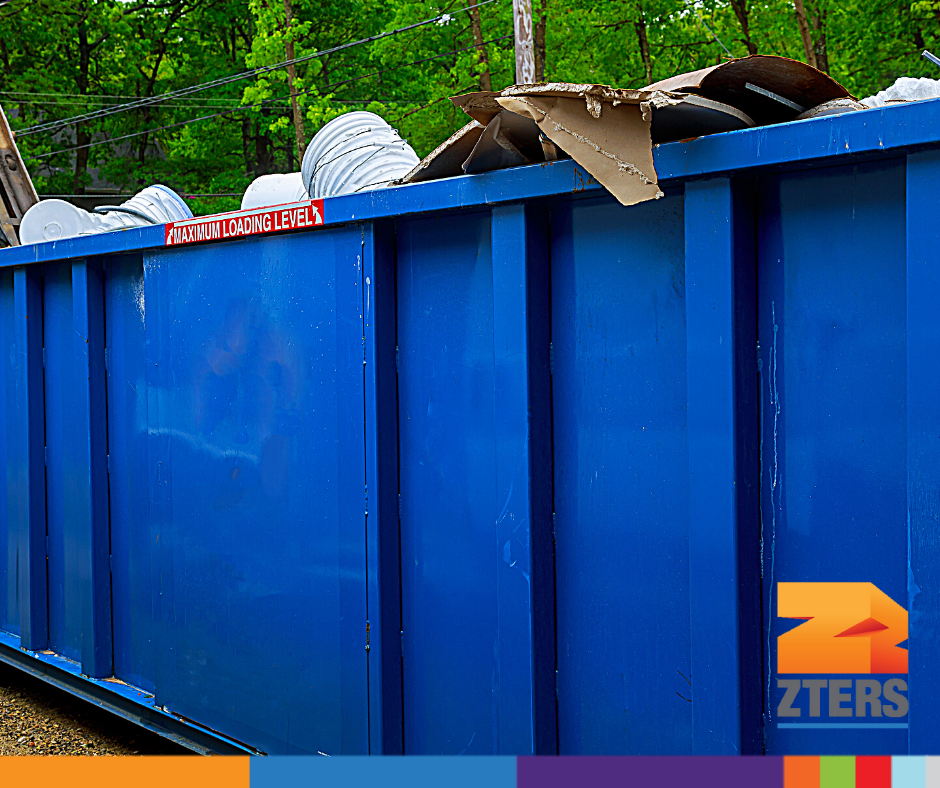5 Dumpster Rental Terms to Know
POSTED ON January 28, 2022 | BY Angela Phillips
Not all dumpster rental companies are the same. It’s important to understand dumpster rental terms and so you know what you’ll be paying for before you place an order. This can help avoid spending more than you should. Before you rent a construction dumpster (or a dumpster for any other purpose!), here’s what you need to know to make sure you’re getting a fair deal.
1. Landfill/Tipping Fees
First things first, it’s important to understand landfill/tipping fees. The waste inside a dumpster has to go somewhere, and in many cases, it will end up in a landfill. The fees associated with landfills are known as landfill or tipping fees. A reputable dumpster rental company will include this fee in their quote and explain it to you at the beginning instead of hitting you with hidden charges when it’s time to pay. Does a rental quote seem too low to be real? Ask if they’ve included tipping fees.
2. Included Tonnage
When you receive your dumpster rental, it will include a tonnage amount. This tells you how much waste (by weight) that you can place in the dumpster for the quoted price. Before you agree on the amount of included tonnage, explain to the dumpster rental company what you’ll be throwing out. They should be able to tell you if the tonnage will be enough for your project. If it isn’t, you’ll need to request a higher amount to avoid overage fees.
We’ve got a post on which size dumpster you should rent based on your needs to help with your decision.
3. Overage Fees
If you do exceed the agreed upon tonnage, get ready to see an overage fee. This should be laid out in your rental agreement before you agree to sign. Overage fees cover the additional cost of disposing a higher amount of waste. If you’re not sure how much waste you’re going to have, go with a slightly larger dumpster or included tonnage.
There’s one other scenario where you’ll see overage fees. If your load ends up surpassing the street legal limit, you’ll see a fine. Street legal limits prevent road damage from trucks that are too heavy. If you’re in a residential neighborhood, this may be a factor. Most street legal limits for dumpsters are 8-10 tons, but that can vary. Check with your municipality if you expect to have more waste than that. Also be aware of weight limits if you’re disposing of heavy materials like soil or concrete. Let the rental company know in advance, so you can get the right dumpster and amount of tonnage to cover the job.
4. Roll-Off vs. Front-Load Dumpster
There are two main types of dumpster rentals.
The most common is a “roll-off” dumpster used on construction sites and temporary projects. These are usually open-ended and “roll off” a truck (which is how they get their name!). See our types of roll-off containers post for more.
You might also see “front-load” dumpsters. Those are used at businesses such as restaurants and strip malls. Both types of rentals are available, so make sure you’re getting the right type for your job and location. Each type of dumpster is available in different sizes, so it’s easy to find one that meets your waste disposal needs.
5. Prohibited Items in Dumpster Rentals
There are certain materials that are dangerous to dispose of in a dumpster rental, and the company you work with should give you a list of these prohibited items. Materials like batteries, motor oil, and tires are often on the prohibited list. Be sure to check with the rental company if you may have hazardous materials, medical waste, or other restricted items to dispose. It’s possible the waste could be refused if there are unsafe or dangerous materials in the dumpster.
At ZTERS, we have upfront pricing and no hidden fees, so you’ll know how much a dumpster rental costs before it arrives at your location. We also have dedicated account managers to help you find the right rentals for your job. Contact us for a quote!
